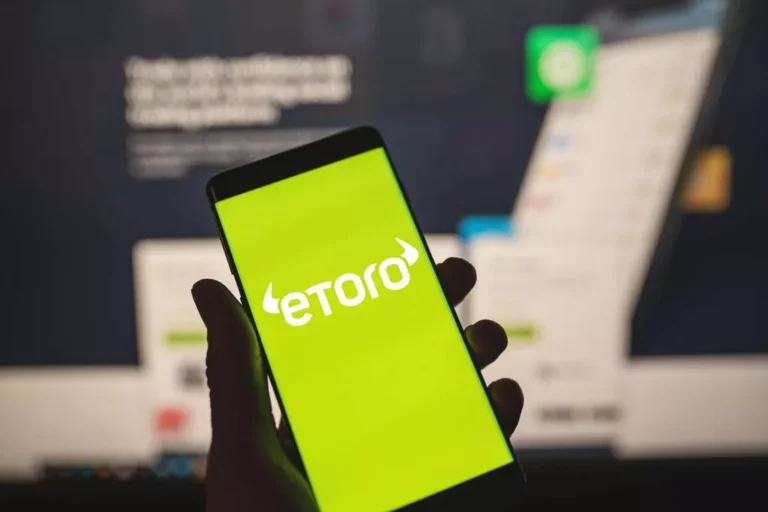An exchange is a marketplace where stocks, bonds, commodities, and derivatives are traded between investors. A broker is an individual or a firm that buys and sells securities on behalf of their clients. As a new trader, choosing between using a crypto broker or a crypto exchange is a big decision.
As a consequence of this model, trades can be settled instantly, with both parties receiving the asset they purchased. Finding a regulated broker to trade legally in your country can be tough. To learn more about how contracts-for-difference (CFDs) work, see this Guide To CFD Trading.
Halborn, our security advisors, have completed two security audits of Synthereum.
When trading with a crypto broker, you do not own the asset itself, only the right to buy or sell the underlying contract as the prices change. Funds are mostly transferred either from your crypto wallet or your debit/credit card effortlessly. Brokers – Brokers usually charge a commission or spread-based fee for their services. The commission fee is a fixed cost per transaction, while spread-based fees involve charging the difference between an asset’s buying and selling price.
They provide customer service and personalised assistance, making them more suitable for beginners or individuals who prefer a hands-on investment approach. In essence, when you place a buy or sell order through a broker, the broker doesn’t merely process the transaction. They often provide you with research, advice, and the means crypto exchange vs trading platform to manage and diversify your portfolio. In return, they charge a commission or fee for their service, which can either be a fixed fee per transaction, a percentage of the transaction value, or a combination of both. A broker facilitates trades between individuals/companies and the exchanges where the broker is licensed.

Brokerages, on the other hand, act as an intermediary between the trader and the market. A crypto broker is a firm or an individual person who acts as a financial intermediary for persons who want to exchange their fiat money for cryptocurrencies. A cryptocurrency broker, like Bitpanda, provides online financial services for users who want to buy or sell cryptocurrencies (and other assets). For providing this service, a broker charges users premiums for using the platform. A cryptocurrency exchange is a digital marketplace where traders can exchange cryptocurrencies for other digital assets or fiat currencies.
Pros and Cons of Using an Exchange and a Broker
If you use the services of a broker, you will be charged a commission for each trade. If you use an exchange, you will not be charged a commission, but you will have to pay a small fee for each trade. They provide personalised services tailored to an individual’s financial goals and risk tolerance. Both traditional and crypto brokers execute transactions on their clients’ behalf. They may offer additional services such as portfolio management, research and analysis, and financial advice.
Exchanges offer the largest variety of cryptocurrencies, typically more than brokers. The advantage of the exchange is the provision of a central location for buyers and sellers to find their own counterparties. The stock market is no longer a brokered market, having transitioned to being an automated exchange.
Where a broker executes a trade may depend on the order size, market conditions, and the type of order. Stock brokers must be registered with the Securities and Exchange Commission (SEC). Futures market brokers must register with the Commodity Futures Trading Commission (CFTC) and be members of the National Futures Association (NFA). Options traders need to register with the Financial Industry Regulatory Authority (FINRA) and either the SEC or CFTC, depending on the markets they access. DISCLAIMERThis article does not constitute investment advice, nor is it an offer or invitation to purchase any crypto assets.
They either hold the funds or work with a network of other brokers in order to keep sufficient supply. Brokers will likely keep prices similar to that of others in the same markets in order to keep demand for their services. Dealer markets are less common in stocks, but more common in bonds and currency. Dealer markets are also appropriate for futures and options, or other standardized contracts and derivatives. Finally, the foreign exchange market is usually operated through dealers, with banks and currency exchanges acting as the dealer intermediary. Understanding the differences between a broker and an exchange is fundamental to navigating the financial market.
Brokers make a decent salary, working through the day ensuring smooth transactions between their clients and the exchanges. Brokers can physically present trades but more often than not, brokers monitor trades from their computers and are only needed to intervene in the case of an exceptionally large or unique trade. The broker receives the order and if the brokerage has those shares available, they will most likely fill Amy’s order immediately.
Broker Regulation
Eventually, exchanges started to grow and add more functions and features to their platforms and expand the base concept thanks to margin trading. Exchanges require some planning ahead because you need your assets to be on the platform before you can trade them and moving financial assets can take several days or even weeks. Additionally, many people are uncomfortable leaving assets on an exchange due to the risk of them being lost or stolen. Traders on exchanges are more at risk of slippage because they lack the price guarantee that a brokerage offers. The brokerage has two primary ways of managing its internal position.

Like their traditional counterparts, a cryptocurrency exchange plays a crucial role in maintaining the liquidity and efficiency of the market. However, crypto exchanges differ in that they operate 24/7 and typically deal with a higher degree of price volatility. With the meteoric rise of digital currencies, traditional brokerage has found its new counterpart in the form of a crypto broker. These brokers function much like traditional brokers but specialise in cryptocurrency transactions. They serve as intermediaries to facilitate the buying and selling of cryptocurrencies like Bitcoin, Ethereum, and many others.
This includes offering advice, guidance, and sometimes even educational resources to help clients make informed decisions. Remember that the top brokers may provide copy trading services, which can help novices or those with little to no time trading on financial markets. You can freely use bank accounts, credit cards, and e-wallets, and sometimes, the most advanced brokers allow crypto transfers. Some merely require the new coming client to enter a legitimate e-mail address, which he verifies and sets up desired passwords. More advanced exchanges require valid authentication, particularly those that operate with fiat currency. Be prepared that someone from the crypto exchange will require you to have a video chat or take a picture of you holding your ID.
- The brokerage has two primary ways of managing its internal position.
- Crypto exchanges and brokers represent the two different approaches you can take to access the market and make trades.
- Normally a government-issued currency such as the U.S. dollar is one of the assets involved in the trade, but it doesn’t need to be.
- Like their traditional counterparts, a cryptocurrency exchange plays a crucial role in maintaining the liquidity and efficiency of the market.
This means that they are taking on some level of risk.Dealers typically work with large institutional investors or other dealers. A trader is someone who takes on risk by buying and selling securities in order to make a profit. Traders can be either individuals or firms.They often use leverage in order to increase their potential profits (and losses). Understand the markets and make the right trades, and you could walk away with some impressive profits. With the increasing popularity of crypto markets, more and more traders are getting into the space. The first thing these new traders need to establish is whether they should choose a cryptocurrency exchange versus a broker.
For example, when you buy bitcoin with dollars you are converting your dollars into bitcoin. Both brokerages and exchanges can offer any type of asset pair and can operate during whatever hours https://www.xcritical.com/ they choose. However, these two models operate quite differently behind the scenes, and this leads to some important differences for what a trader can accomplish in either type of market.
Difference between Trading Platform And Exchange
Debbie writes for many high-level and top-tier media organizations and has contributed to Barron’s, Chicago Tribune, The Guardian, MarketWatch, The Wall Street Journal, and U.S. The older cryptocurrencies get, the easier it is to spot certain types of scams, but traders should always be cautious. Many attempts to scam traders may come across as professional services.

